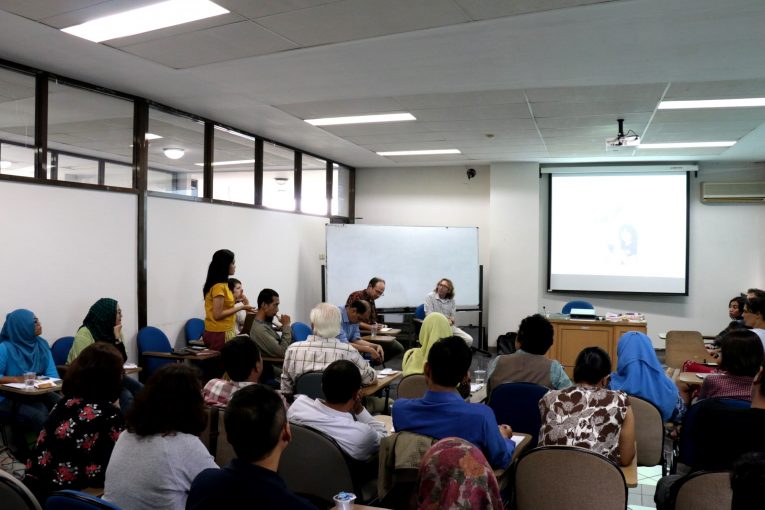
Meta Ose Ginting | CRCS | WedForum Report

Jonathan Zilberg, a cultural anthropologist whose research and advocacy focuses on museum ethnography, argued that Indonesian museums face such problems as performance, transparency and accountability, but they have the potential power to promote pluralism to the public. In his February 1st Wednesday forum presentation, he raised questions as to how Indonesian museums can be a strong bond to serve Indonesia’s diversity.
Based on his research in National Museum of Indonesia in Central Jakarta, Zilberg argued that museums are an extension of culture and identity. He conducted his research by closely examining the activities of visitors of National Museum. He took photos from different angles and then reflected on how visitors interact with the objects on display. He stressed that a museum that functions well should be a place to learn and display democracy. Different people come to the museum with various interests. These differences can lead them to learn about pluralism in comfortable ways.
In museums, Zilberg argued, people need to engage with the objects displayed. Self-engagement is important because objects only become alive when viewers ask questions. In the act of raising questions, they not only identify the sculpture but also identify their own selves. For museums to promote pluralism, they need to offer spaces to create stories rather than only technical information.
Especially since the National Museum was re-organized, many people are no longer connected to the sculptures displayed there. There is distance of the visitors and the object. Zilberg stated that a meaningful experience in museum can be had by touching the object and being involved with them. Reaching is an act of identification. There does not need to be any process of mediation in the museum. According to Zilberg, storylines in museum lead to simplification; they narrow the space for audience to create their own stories, especially for children.
At the end, Zilberg restated his opinion about the potential roles of Indonesian museums for being promotors of pluralism and for educating the public about national cultural and religious diversity and the history of the archipelago. Indonesian museums can be supporting units of education for diversity, but one major problem is that schools do not typically have the resources for school visits at the museums. On their own, he and members of the audience sensed, Indonesians do not go to their museums and have little, if any, interest in them.
In the question and answer session, the discussion focused on Zilberg’s argument that storylines go against pluralism because they can be controlling while people should create their own stories. For him, museums are alive when people are involved in asking questions. In the museum people shouldn’t tell people what they need to know. Instead people need to ask questions to experience the museum for themselves.
See some video clips of this wedforum event in Youtube.
*Meta Ose Ginting is CRCS student of the 2015 batch

